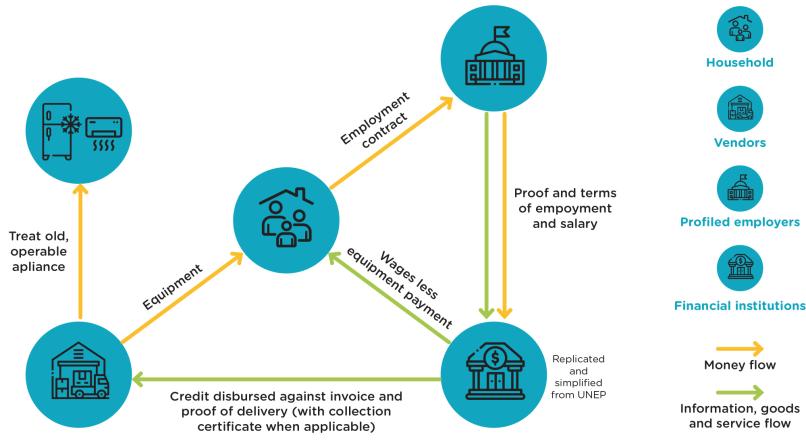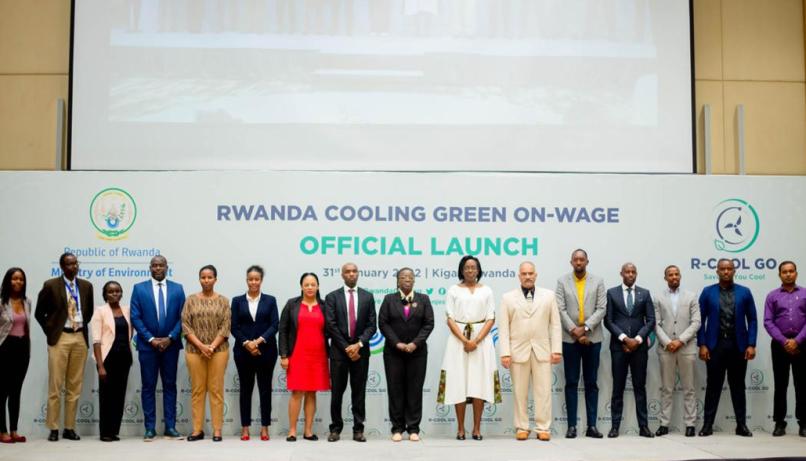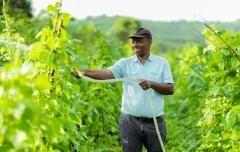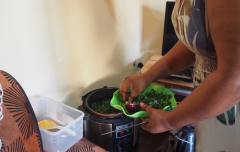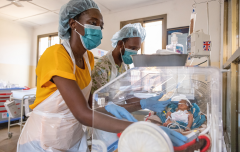Chilling Prospects 2022: Unlocking financing for energy-efficient cooling in Rwanda
|
Reflections on five years of the Kigali Amendment by the Rwanda Cooling Initiative |
In 2018, the United Nations Environment Programme (UNEP) United for Efficiency (U4E) initiative, the Basel Agency for Sustainable Energy (BASE) and the Rwanda Environment Management Authority (REMA) launched the Rwanda Cooling Initiative (R-COOL) with support from the Clean Cooling Collaborative (CCC). Its aim was to aid the country’s transition to efficient, climate-friendly cooling through a range of policy measures (including Africa’s most ambitious minimum energy performance standards (MEPS) and labels based on U4E’s Model Regulation Guidelines).
The scope was expanded in early 2021 to include the development of a financing initiative (FI), which is expected to unlock at least USD 1 million in financing for 12,500 approved appliances by 2024. The initiative was informed by the ECOFRIDGES green-on wage financing (GO) approach which had been successfully initiated by the team in Ghana as the most appropriate approach for the Rwandan market, allowing public and private sector employees to use a low-interest bank loan to purchase qualifying appliances with repayments deducted from their salaries. Like ECOFRIDGES, R-COOL FI is comprehensive in addressing recycling and capacity building.


